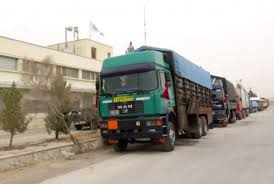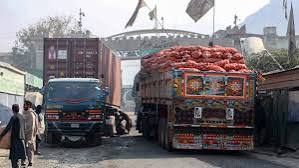Trade and investment problems in Afghanistan
Trade and investment in Afghanistan is facing many challenges and problems caused by political, economic, social and infrastructural factors. Some of these problems are:
-
Lack of political and security stability
• Afghanistan has been facing war and insecurity for the past decades. Despite the reduction of the war, security problems still prevent investors from entering the Afghan market.
• Distrust in the stability of the political system and ruling laws is also a big obstacle for domestic and foreign investors. -
Lack of sufficient infrastructure
• Lack of basic infrastructure such as electricity, transportation, and information technology increases production and trade costs and makes investment uneconomical.
• Inadequate roads and railways and lack of access to seaports made international trade difficult. -
Legal and bureaucratic problems
• Complicated laws and lack of transparency in administrative processes such as company registration, licensing, and tax payment make the business environment unattractive.
Widespread administrative corruption is also one of the serious obstacles for trade and investment. -
Lack of skilled labor
• Manpower lacks specialized and professional skills in many sectors. This problem reduces productivity and product quality. -
Dependence on imports
• A large part of Afghanistan’s needs are met through imports, which reduces the desire to invest in domestic production. -
Banking and financial problems
• Afghanistan’s banking system is weak and inefficient. Problems related to money transfer, lack of financial and credit facilities, and international sanctions have limited business and investment activities. -
Heavy taxes and tariffs
• The increase of heavy taxes and tariffs by the Taliban government is one of the factors that cause the complaints of businessmen and investors and reduces economic incentives. -
Lack of access to international markets
• Sanctions and the lack of extensive relations with international markets have limited Afghanistan’s foreign trade and made it difficult to invest in export-oriented industries. -
Lack of confidence in the rule of law
• The absence of an independent judicial system and the existence of discrimination in the settlement of economic claims worry businessmen and investors that they will not be able to defend their rights in case of problems.
Solutions
• Improving infrastructure: investing in sectors such as energy, transportation and technology.
• Reforming laws: simplifying and clarifying trade and investment laws.
• Reducing corruption: implementing anti-corruption programs and improving transparency.
• Attracting foreign investment: providing incentives such as tax exemptions and guaranteeing investment security.
• Development of education and skills training: investing in workforce training to increase productivity.
Creating a safe and stable environment is of special importance for the prosperity of trade and investment in Afghanistan.

